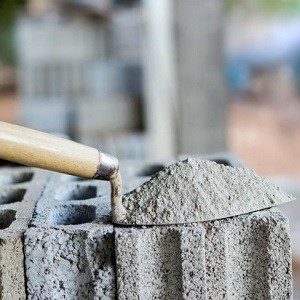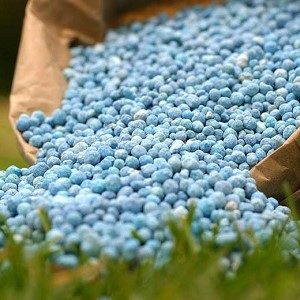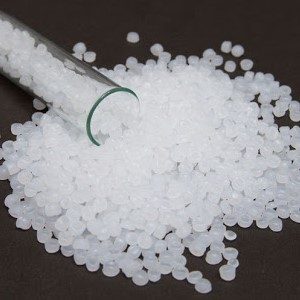Sectors
The invaluable experience and technical expertise acquired through the installation of numerous machines over the years makes Metral your ideal partner.
The sectors in which Metral mainly focuses its business are: construction materials, food, chemical products and fertilisers.
Of these sectors, the one on which Metral has focused most of its efforts in recent years is undoubtedly construction. Today, the company is in a position to satisfy the demand for complete “turnkey” systems anywhere in the world.

Building industry

Food and feed industry

Fertilizers

Chemical
Building industry
Metral has predominantly concentrated its business on the construction industry in recent years and, in doing so, has gained the confidence of the leading international companies in the sector.
Whether it be for cement, mortar, lime, sand or expanded clay, all of which are products that are difficult to package, Metral is able to offer the ideal solution.
Typical products
- Cement
- Mortar
- Sand
- Gravel
- Lime
- Pearlite
- Others
Typical on-site conditions and machinery characteristics in this sector
- Extremely dusty environments.
- Products that are often highly abrasive.
- The machines used for these applications have to be very resistant to ensure reliability with a reasonable level of maintenance.
- It is necessary to adopt technical solutions that protect the machine’s moving parts from the dust produced by the product, and provide surface treatments to protect against atmospheric agents.
- The construction sector generally requires simple and very sound, but also high performance, solutions.
Bag characteristics
- Mainly paper bags with valves.
- In some countries, raffia bags.
- Plastic FFS bags with two or three welds.
- Raffia big bags with or without interior polyethylene bag.
- Open mouth bags.
Types of dosing machine
- Vibrating
- Belt
- Gravity
- Screw
Commonly used bagging machines
- Rotary bagging machines with vertical turbine.
- Rotary bagging machines with fluidiser.
- Static bagging machines with vertical turbine.
- Static bagging machines with horizontal turbine.
- Vertical FFS machines.
- Tubular FFS machines.
- Big bag filling with screw feed.
- Open mouth bagging machines.
Palletisers
- Traditional layer palletisers, 400 – 5,000 bags/hour, depending on production needs.
- Robot palletisers.
Pallet protection and stability
- Stretch wrapping machines with turntables.
- Stretch wrapping machines with rotating arms, with or without lids.
- Stretch hooding machines.
- Heat-shrink hooding machines.
Food and feed industry
The food industry is noted, understandably, for its strict health and hygiene regulations.
Machinery manufactured for this sector requires technical solutions that enable rapid and thorough cleaning, ensuring that even the smallest spillages are removed to prevent poor conditions of hygiene, e.g. the appearance of mould.
The most important characteristics of the machinery used in this sector are as follows
- Quick format changes.
- Quick product changes without contamination.
- Dust accumulation prevention.
- Compliance with the ATEX Directive.
- Manufacture in AISI 316 stainless steel for all parts that are in direct contact with the product.
- Hermetic valve closure.
- Remote control and online support service.
- An interactive software control system containing all information, including all operating and maintenance manuals.
- Increased demand for nitrogen injection to reduce the presence of oxygen inside the packaging.
Fertilizers
Typical products in this sector include
- NPK
- Urea.
- Phosphates
- Nitrates
- Organic fertilisers
Typical on-site conditions and machinery characteristics in this sector
- Extremely dusty environments that require drying to prevent moisture from causing extremely corrosive reactions.
- Products that are subject to frequent changes in specific weight.
- All parts in contact with the product are manufactured in stainless steel.
- Bagging machines are often required to operate in controlled temperature conditions to prevent moisture from mixing with the product, which, if allowed to dry in the machine, becomes a highly corrosive solid mixture that is difficult to remove.
- The machinery used in these operating conditions must be highly resistant to ensure good durability and reduced maintenance costs.
- Technical solutions should always ensure that all moving parts are well protected against dust and atmospheric agents.
- Machinery that is sound, simple but also highly efficient.
Chemical
In the chemical industry, numerous products need to be packaged in paper or plastic bags.
These products can be considered simple to package, as in the case of the petrochemical industry (mainly granules and no dust), or particularly difficult, in the case of products with physical characteristics that require highly complex packaging procedures and special dedicated solutions.
For the simple products, tubular and flat film FFS bagging machines are most widely used.
Dosing is based on net weight and gravity feeders are used.
Given the type of machines used, the most common is the plastic bag.
For applications with difficult products, the most commonly used are pre-formed valve or open mouth bags.
Considering the function that the bag has to perform, paper bags are often the only possible solution.
In this sector, typical operating conditions can also be very different.
For certain products, machines are required to operate in classified areas in accordance with the ATEX Directive.
Production rates also vary greatly depending on the type of product to be bagged.
Metral’s workhorse for these applications is undoubtedly the pneumatic valve or turbine bagging machine, whose main characteristic is its capacity to bag particularly difficult products.
